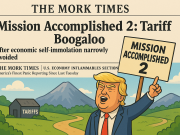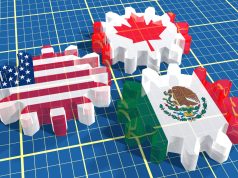In the rapidly evolving landscape of modern work, the ability to negotiate effectively has become a linchpin for professional success. Regardless of your industry or role, the art of compromise stands as a vital skill that can determine the trajectory of your career and the well-being of your workplace. As an experienced Labor Union Representative, I’ve witnessed firsthand the transformative power of adept negotiation, and it’s my mission to impart this knowledge to today’s professionals—preparing you for tomorrow’s workplace challenges.
To begin unpacking the multi-faceted realm of negotiation, we must recognize that it transcends mere deal-making. It’s about understanding needs, bridging differences, and forging a path forward that benefits all parties involved. From the front lines of unionized workplaces to the boardrooms of Fortune 500 companies, negotiation skills are the common denominator contributing to successful outcomes.
Through in-depth analysis and case studies featuring leading organizations, we will uncover the strategies employed by top negotiators. Interviews with these industry leaders will reveal not only their tactics but also the mindset that underlies successful compromise. These narratives will provide actionable advice that you can apply within your own professional sphere.
How, then, can professionals develop a negotiation mindset without sacrificing their interests or those of their coworkers? The key lies in mastering a balance between assertiveness and empathy. Assertiveness ensures your voice is heard and your interests are communicated effectively, while empathy allows you to understand and consider the perspectives of others, leading to solutions that are more likely to gain widespread support.
Understanding the psychology behind negotiation is paramount. Cognitive biases, emotional influences, and communication barriers can all disrupt the negotiation process. By recognizing and addressing these factors, professionals can mitigate their impact and steer negotiations toward a positive outcome.
Furthermore, strategies from international diplomacy can offer valuable insights for office discussions. Diplomats navigate complex issues and cultural differences to achieve consensus—a skill that can be adapted to resolve the interpersonal and organizational challenges faced in the workplace.
This comprehensive exploration into negotiation will not only enhance individual skill sets but also foster a dialogue on how a collaborative approach can cultivate a more harmonious and productive work environment. Armed with these insights, today’s professionals will be better equipped to confront and conquer the negotiation challenges that lie ahead—and do so in a manner that upholds their professional integrity and promotes collective advancement.
As the workplace continues to evolve, becoming adept at the art of compromise is not an option—it’s a necessity. Embrace these techniques, and transform the way you navigate the complex waters of professional negotiation. Let’s set sail together towards a future where compromise is not a sign of weakness, but a strategic asset wielded by the skilled, the savvy, and the successful.

















![From TAOLabs: A New, Simplified Way to Learn in the Age of Chaos [30m60h90d] From TAOLabs: A New, Simplified Way to Learn in the Age of Chaos](https://theworktimes.com/wp-content/uploads/2025/05/ChatGPT-Image-May-13-2025-01_11_22-AM-238x178.png)










